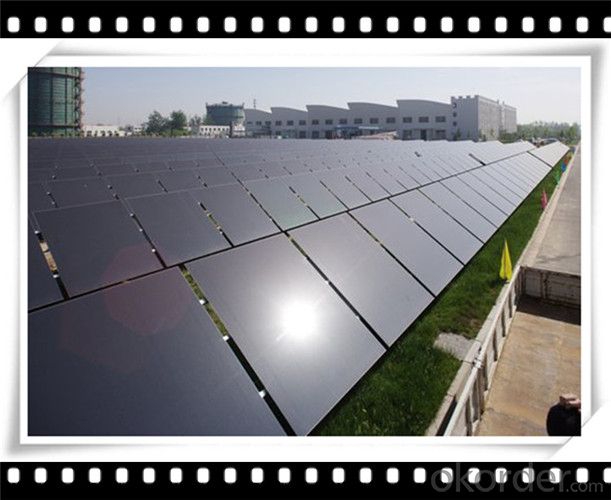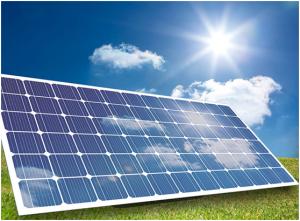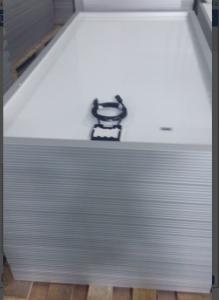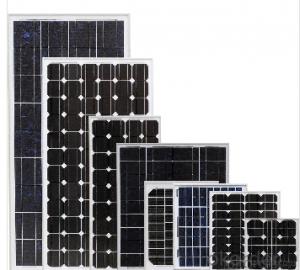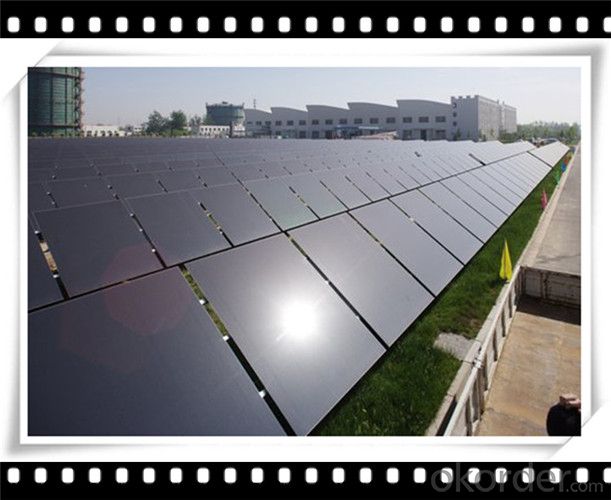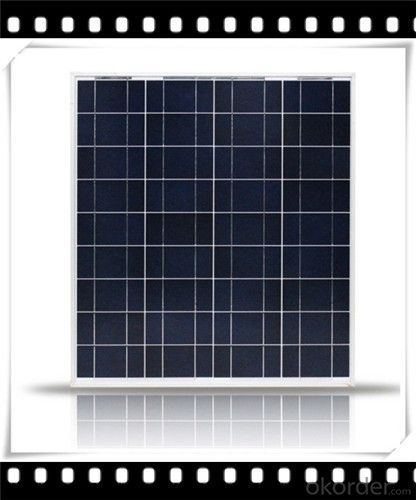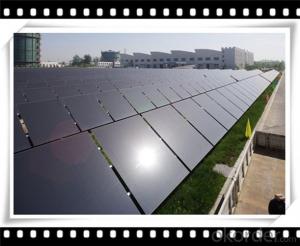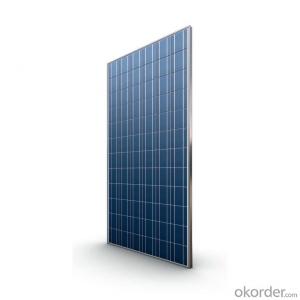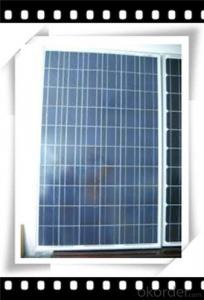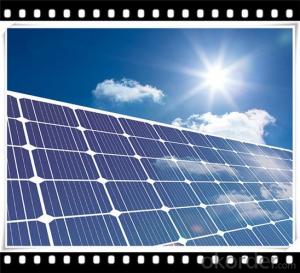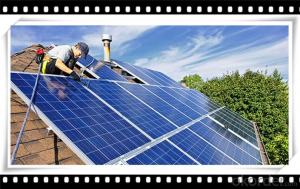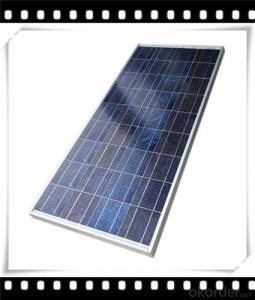80w Poly Solar Panel for Backpacking - Small Solar Panel Manufacturer in China CNBM
- Loading Port:
- Qingdao
- Payment Terms:
- TT OR LC
- Min Order Qty:
- 10 set
- Supply Capability:
- 300000 set/month
OKorder Service Pledge
OKorder Financial Service
You Might Also Like
Polycrystalline Solar Modules
CNBM offers a range of small, medium and large polycrystalline solar modules, designed for a range of requirements.
Specifications:
+/-3% |
Polycrystalline silicon solar cells (156 x 156mm) |
60 (10 x 6) |
1650 x 990 x 40 |
25.5 |
Limits:
Operating Temperature | -40~+85? |
Storage Temperature | -40~+85? |
Maximum System Voltage | 1000 VDC max. |
Hail Impact | Diameter of 28mm with impact speed |
Temperature and Coefficients:
NOCT | 48C+/-2? |
Voltage temperature coefficient (%/K) | -0.35 |
Current temperature coefficient (%/K) | 0.05 |
Power temperature coefficient (%/K) | -0.45 |
Characteristics:
Model: | SGM-200P | SGM-210P | SGM-220P |
Max-power voltage Vmp (V) | 29.2 | 29.4 | 29.41 |
Max-power current Imp (A) | 6.85 | 7.14 | 7.48 |
Open-circuit voltage Voc (V) | 36.5 | 36.69 | 36.9 |
Short-Circuit Current Isc (A) | 7.28 | 7.6 | 7.93 |
Max-power Pm(W) | 200 | 210 | 220 |
Model: | SGM-230P |
Max-power voltage Vmp (V) | 29.8 |
Max-power current Imp (A) | 7.72 |
Open-circuit voltage Voc (V) | 37.31 |
Short-Circuit Current Isc (A) | 8.19 |
Max-power Pm(W) | 230 |
STC: Irradiance 1000W/m2, module temperature 25?, AM-=1.5
Poly Crystalline Solar Panels Specifications Range
Maximum Power (Pm) | Dimension | Weight | Operating Voltage (Vmp) | Operating Current (Imp) | Open Circuit Voltage (Voc) | Short Circuit Current (Isc) |
0.45W | 140x80x10mm | 0.08kg | 3.3V | 150mA | 4.6V | 160mA |
1.0W | 162x140x10mm | 0.16kg | 7.5V | 150mA | 10.3V | 160mA |
4.5W | 269x251x23mm | 0.8kg | 16.5V | 0.27A | 20.5V | 0.3A |
10W | 420.1×268.9×22.6mm | 1.92kg | 17.5V | 0.58A | 20.5V | 0.6A |
20W | 425x502x50mm | 3.0kg | 16.8V | 1.19A | 21.0V | 1.29A |
30W | 593x502x22.6mm | 3.9kg | 16.8V | 1.78A | 21.0V | 1.94A |
40W | 655x537x50mm | 5.75kg | 17.3V | 2.31A | 22.1V | 2.54A |
50W | 839x537x50mm | 6.0kg | 17.5V | 2.9A | 21.8V | 3.17A |
65W | 1111x502x50mm | 7.2kg | 17.6V | 3.69A | 22.1V | 3.99A |
80W | 1204x537x50mm | 7.7kg | 17.6V | 4.55A | 22.1V | 4.8A |
- Q: Do solar panels require regular inspections or maintenance checks?
- Yes, solar panels do require regular inspections and maintenance checks to ensure optimal performance and longevity. These inspections typically include monitoring the panels for dirt, debris, or shading that may reduce their efficiency, as well as checking the electrical connections and wiring for any issues. Additionally, ongoing maintenance such as cleaning the panels and replacing any faulty or damaged components is essential to keep the system operating efficiently.
- Q: Pls is it ok to connect a 0watt and 20watt solar panel together into a charge controller port, can i just tie the wires together and run into the controller?? Will damage anything...Thanks guys
- Tobi, generally yes, solar panels are like beer, all the europeans get along fine, you can put two Belgiums in the same room as one German and three Englishman. As long as the panels have roughly the same open circuit voltage, usually around 8 volts, then go for it. If you're not sure about this, or the panels voltage disagrees dramatically, then they can still work through the same charge controller, the only other thing you need is a bypass diode in the junction box on the back of each panel. Most modern panels come with these already installed. They are simply electrical check valves, allowing current flow in one direction but not the other. The reason these matter is when the sun is first coming up, the higher voltage panel can force its power backwards through the lower voltage panel, at least until they both reach a voltage higher than the charge controller is set at. This is not a desirable thing to have happen, the 20 watt panel, if its voltage is higher, can damage the 0 watt panel without these diodes if the 20 watt has a much higher open circuit voltage, or Vmax. Look on the back of the panel for these ratings. The only other concern is maximum current. A charge controller has a maximum current it can handle, they are generally model numbered this way, a Xantrex C-60 for example has a 60 amp rating. Add up the Imax numbers on the back of all your panels, this is the maximum amperage the panel should put out. As long as it is not above 80% of your charger controllers maximum amperage, your good. Take care, Rudydoo
- Q: Can solar panels be used in countries with limited sunlight?
- Yes, solar panels can still be used in countries with limited sunlight. While solar panels are most effective in regions with abundant sunlight, they can still generate electricity in areas with less sunlight. Even countries with limited sunlight exposure can benefit from solar energy by utilizing advanced solar technologies and optimizing panel placement to maximize energy production. Additionally, solar panels can still generate electricity on cloudy or overcast days, although at a reduced efficiency compared to sunny days.
- Q: I was trying to figure out if I could run an electric heater off of a solar panel, but I don't understand these electric convertion factors and stuff. Would it work? (I know it'll only work in the daytime and stuff.)SOLAR PANELPeak Power 95W PTC Watts 73.0WVoc 30.7VPeak Voltage 24.4VIsc 8.6APeak Current 7.96A HEATERInput: 20 V/60 Hz ,500 W/5,200 BTU
- the panel would have to be on for 0 hours in the sun to get an hours use with the set up. try researching solar hot water heaters. they are much more efficient. a cheap one would be painting an old hot water heater black and pipe it to the new hot water heater. it will save you 80% of your electric hot water bill.
- Q: Photosynthesis is fairly inefficient, but efficient enough to power all life on earth.
- Si is a neutral semiconductor, and, when combined with the other metals in the solar panel, it the panel polarizes, and releases electrons form one end, and accepts them back at the other. Like a water pump. Mg is not the major ingredient because it doesn't have the easily altered semiconductor properties Si does. To put it simply, Si is easier to work with.
- Q: How do solar panels impact the electrical grid?
- Solar panels impact the electrical grid by generating clean and renewable energy from sunlight. When connected to the grid, they can feed excess electricity back into the system, reducing the overall demand for fossil fuel-based power generation. This helps to lower greenhouse gas emissions and dependence on traditional power sources. However, the intermittent nature of solar power requires careful grid management and integration to ensure stability and reliability.
- Q: what are the main minerals that are used in making solar panels. and where in the world are those minrelas usually found
- Heating panels have aluminum for the frame, glass for the top, copper pipes running through them, and possibly some plastic parts. The raw materials are easily obtained. Copper is the most difficult to get probably, but it's not all that rare, since we used to make pennies out of it. A solar electric panel is similar, with the copper used for wires and interconnect instead of pipes. The actual solar cells commonly used are almost completely pure silicon, which is abundant worldwide. There are traces of other elements in the silicon like boron, arsenic or phosphorous - these are also inexpensive, and easy to get.
- Q: Can solar panels be used for camping or outdoor activities?
- Yes, solar panels can be used for camping or outdoor activities. Portable solar panels are designed to be lightweight and easily transportable, making them ideal for powering electronic devices and charging batteries in remote locations. They harness the sun's energy to generate electricity, allowing campers to have a reliable and sustainable power source while enjoying the outdoors.
- Q: Can solar panels be installed on warehouses or industrial facilities?
- Yes, solar panels can be installed on warehouses or industrial facilities. In fact, these types of buildings often have large rooftops or open spaces that are ideal for solar panel installations. This allows them to generate clean and renewable energy, reduce their reliance on traditional power sources, and potentially save money on energy costs.
- Q: Can solar panels be installed on flat roofs?
- Yes, solar panels can be installed on flat roofs. In fact, flat roofs are often well-suited for solar panel installations due to their large surface area and easy accessibility. Mounting systems can be used to position the panels at an optimal angle for maximum sunlight exposure.
Send your message to us
80w Poly Solar Panel for Backpacking - Small Solar Panel Manufacturer in China CNBM
- Loading Port:
- Qingdao
- Payment Terms:
- TT OR LC
- Min Order Qty:
- 10 set
- Supply Capability:
- 300000 set/month
OKorder Service Pledge
OKorder Financial Service
Similar products
Hot products
Hot Searches
Related keywords



